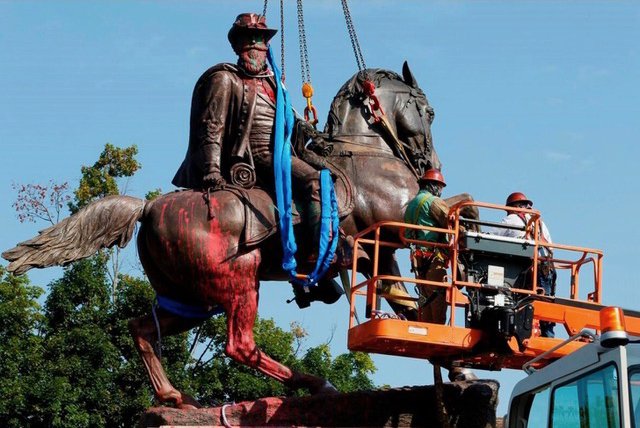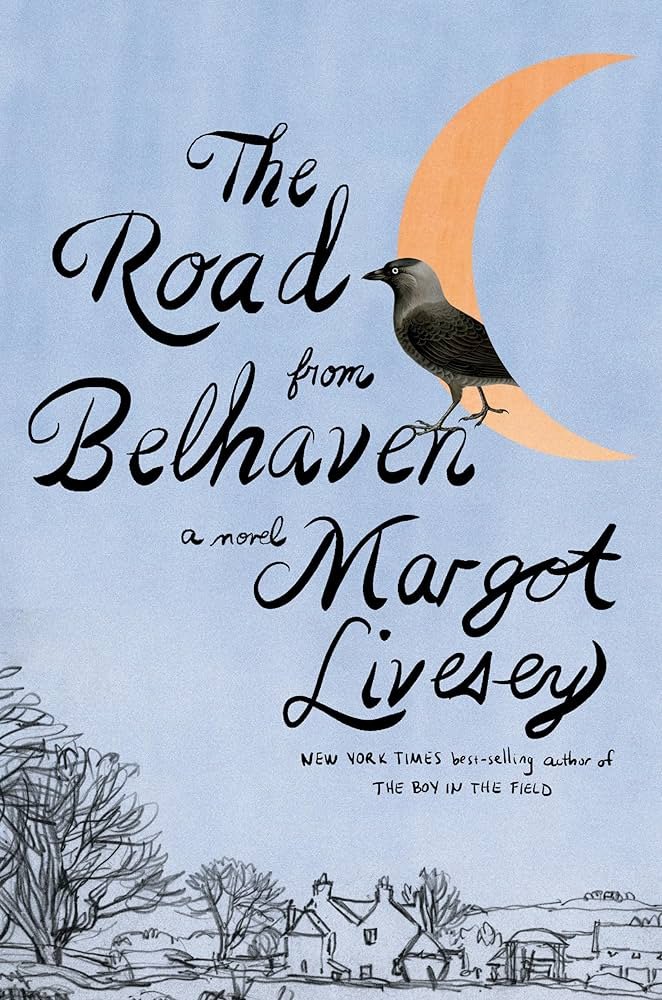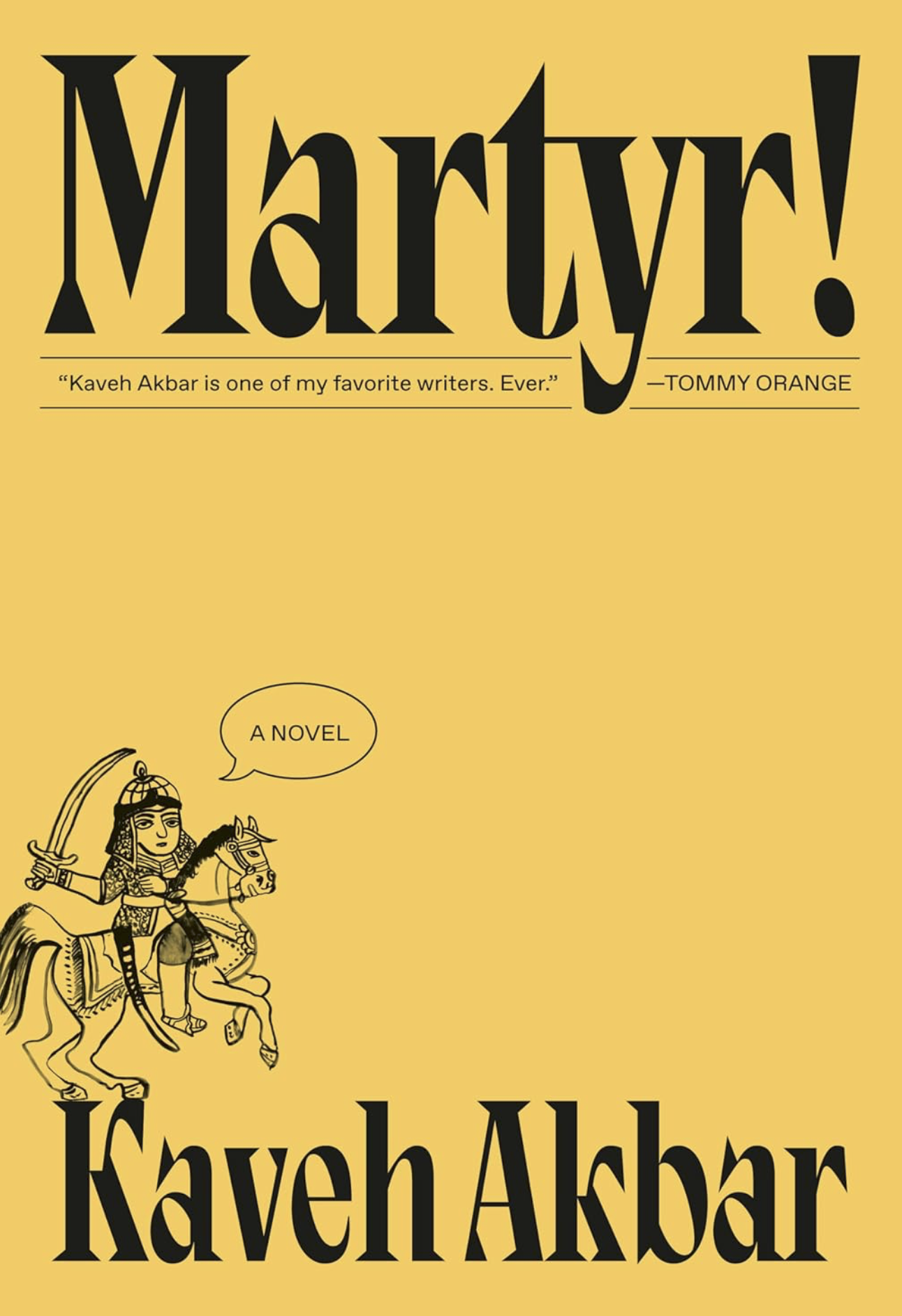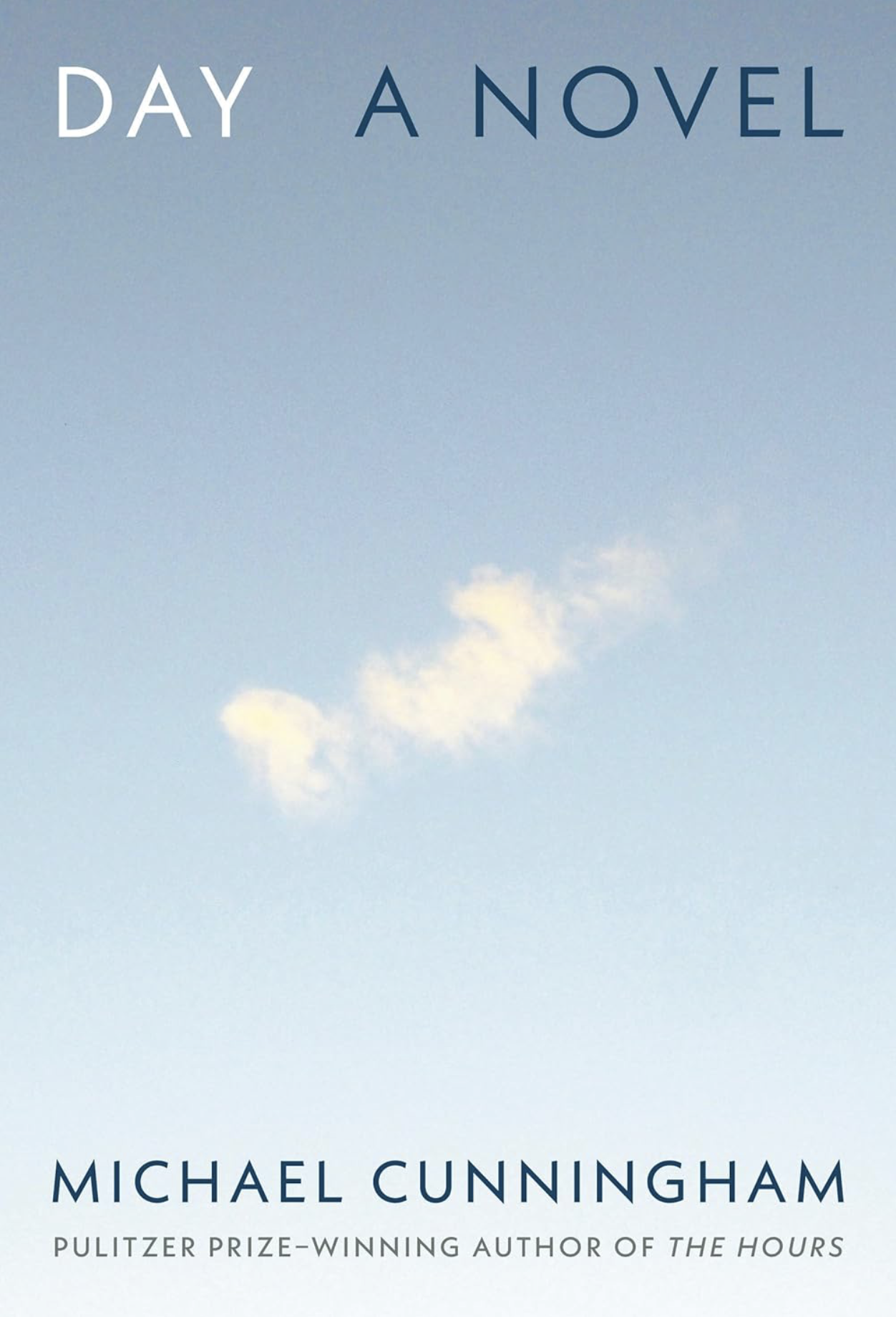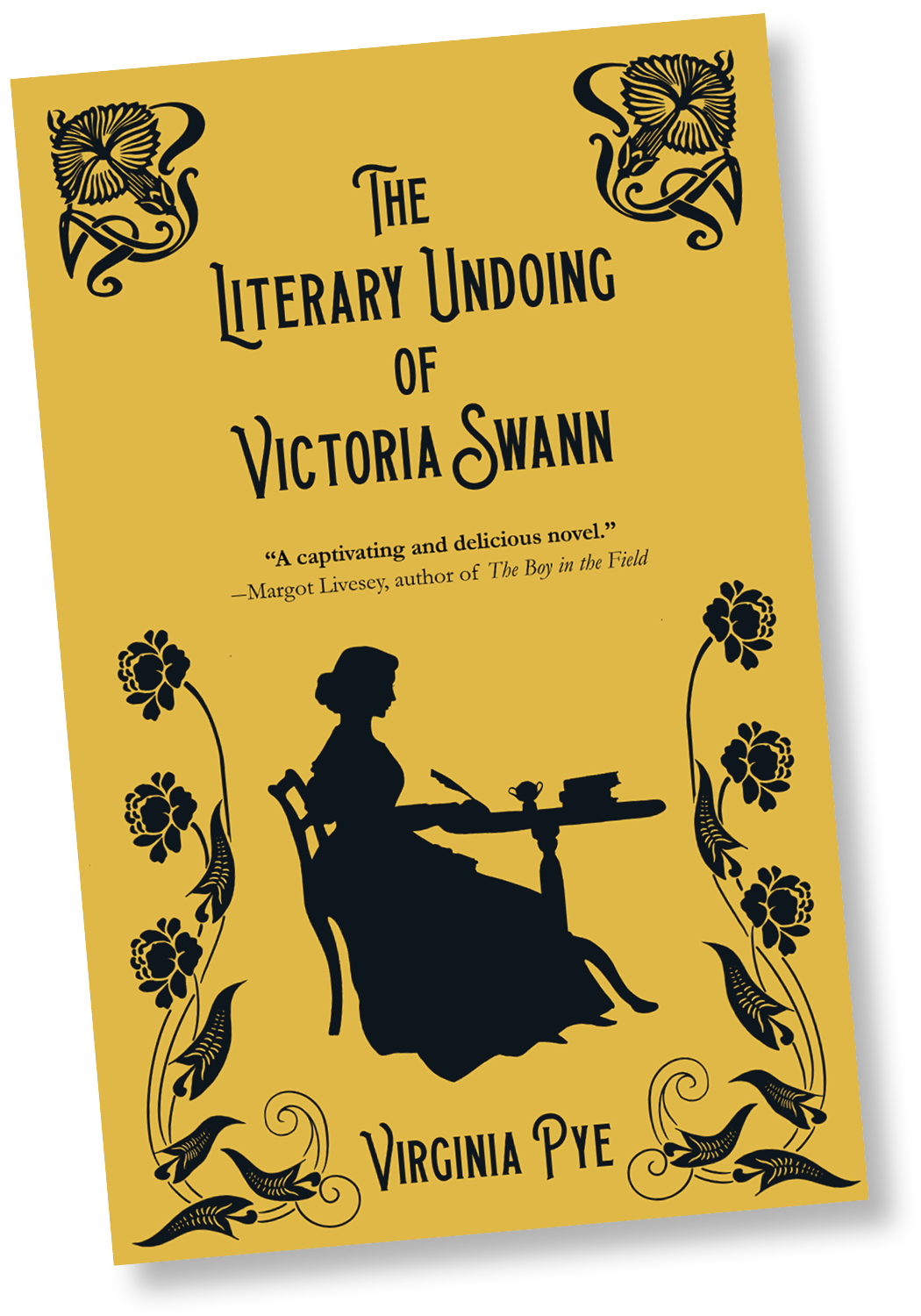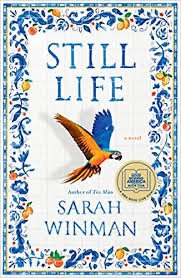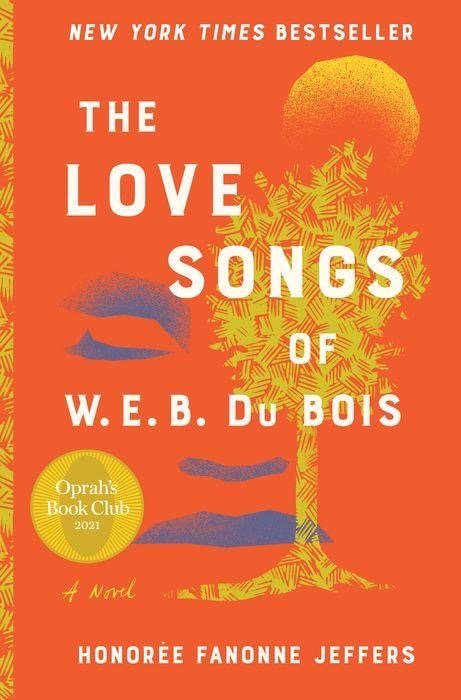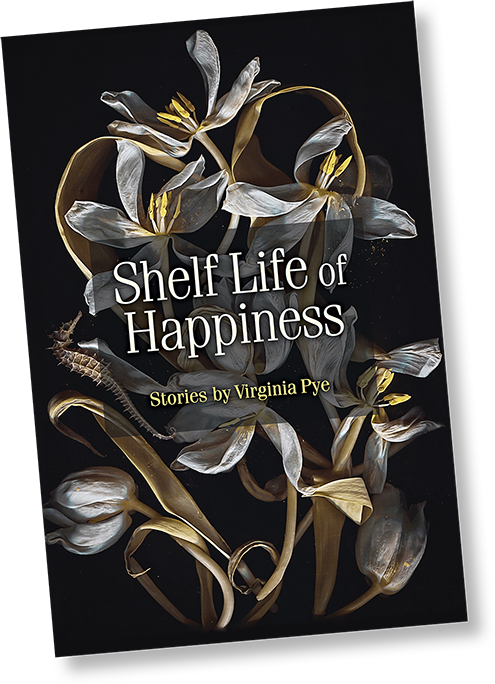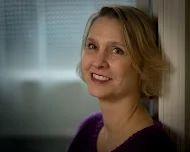VP: The Merciful is a beautifully written, thoughtful, serious novel—though not one without humor—that I think prompts the reader to contemplate larger philosophical questions. I hope our exchange here can get to some of those frankly deep ideas that give this work such depth and beauty.
But first, can you offer a brief summary of The Merciful? What would you most like people to know about it?
JS: I would describe the book as a morality play about the hit-and-run killing of a bicyclist in Lowcountry South Carolina. The novel is narrated by a writer in Virginia who learns his old college friend is the alleged culprit, and the story is the narrator’s investigation of the crime and the subsequent trial. Like the film Rashomon, it shows multiple angles on the story to try to show a more comprehensive truth.
VP: As you suggest, the novel is told through multiple perspectives of characters who are connected to the terrible accident in which a car hits a young woman biking alone at night on a dark road. We hear from the accused, the prosecuting attorney, the attorney for the defense, the boyfriend of the girl who was killed, and others. All of these different characters live in and around the town of Overlook, South Carolina. The town itself becomes a character of sorts. Can you talk about Overlook and the people who live there? I felt you were making a critique of this type of Southern leisure town that in fact has a darker side to it.
JS: I modeled Overlook on some of the coastal towns near Hilton Head Island, which have seen an incredible amount of growth and change over the past 10 years or so. Until recently, the Lowcountry was quite a poor region in general, but wealthy outsiders have transformed towns like Overlook into something new. I’m fond of the William Gibson quote, “The future is already here. It’s just not evenly distributed.” Likewise, old and new coexist in the South Carolina Lowcountry: gated communities and Publix on one street, trailer parks and Walmart on the next street. So, in the novel, you have the victim, Samantha, from one of the well-to-do neighborhoods and a freshman in college, while her high school boyfriend, Charlie, has a single mom and is selling used cars. Daniel is the Midwesterner living in the simulacrum of the South, whereas the narrator grew up amid the last vestiges of the real thing.
The writer George Singleton once referred to the “New New South.” The New South refers to the industrial, post-Reconstruction South, and the “New New South” is an odd blend of old Southern culture with a national, homogenized way of being—Starbucks and high-speed internet. In the emerging culture, the “South” feels like it has been commodified. I think we’ve generally lost a sense of authentic local culture and community in America, and in the absence of the thing itself, we’ve packaged it up and offered it for sale. Call it the Pottery Barn aesthetic: craftsman chic, reclaimed barn wood on the wall, a hipster restaurant selling grandma’s biscuits for $5 apiece. I don’t know if I’m critiquing this cultural shift, exactly, but I do think I’m more conscious of it than your average person living in it.
VP: Of all the characters you could have chosen to narrate your story, you pick one who is only tangentially connected to the accident. He is the former college roommate of the accused man, Daniel Hayward. Jay doesn’t live in Overlook and hasn’t seen Daniel in years. And yet, when he hears of the terrible accident that his old friend might have caused, he becomes intrigued by not only by what happened that night on the dark road, but the experience that would necessarily change his friend’s life forever. Jay is drawn to the disaster. Can you talk about how and why you chose Jay as your narrator?
JS: I originally started with the prosecutor, Claire, and her section was in this omniscient voice. It was the first time I’d ever really tried writing in that mode, and I was interested in the idea of voice. One nice thing about writing in omniscience is the narrative can have a little personality. When I got stuck at the end of her section, I started thinking about voice, and about the fiction of fiction—who was the narrator? Where did the voice come from? An omniscient narrator is supposed to be all knowing, but in reality it’s limited by the knowledge and worldview of an invisible, unacknowledged author.
I don’t really know why, but somewhere along the way I decided to give you a peek behind the curtain, and I started over in the first person voice to introduce the narrator. Why was he writing this story? What were the stakes? That helped me get unstuck. I imagine it’s a bit like how an actor feels putting on a character’s mask—the narrator gave me a personality so that it wasn’t me writing about the prosecutor and then the defense attorney. It was this narrator, Jay, making it up.
That helped me move through the book, character to character, until the end. When I looked up I realized I’d written a book about storytelling in some ways, a book about how narratives are crafted—the narrative in the news about the hit and run, the narrative about the defense attorney’s video scandal, the narrative of the car salesman and his Ponzi scheme, the narrative about brain emulations and whether the world is a simulated reality. It seemed fitting that these crafted narratives would be framed by a meta-narrator, so I kept him.
VP: As I read it, Jay is the Nick Carraway of this story, while poor Daniel Hayward is an unsuccessful Gatsby. Daniel has been raised to think he will be great someday, and even convinces his wife, Francine, of this. Although he marries the woman of his dreams and is able to buy a big, showy house, he’s stagnating in life. Did you think of Daniel in relation to Gatsby? They’re both failed American heroes, after all, and both have distinctly vague morals.
JS: Yes, I think that’s a great observation. It’s been a while since I read The Great Gatsby, but if I’m remembering correctly, it seems like Gatsby’s striving is related to class. Daisy and her crowd are in a posh, upper crust social circle, whereas Gatsby has to do the work to buy his way into their society. That’s an American ideal, that allegedly we are not born in a fixed class system and you can work your way into whoever you want to be, but of course it’s not so simple.
Daniel is born with plenty of advantages, but he’s come to the Lowcountry from Ohio. I suspect everywhere in the South is changing into this generalized American “New New South,” but he went to college in Charleston in the early 2000s, and at that time the Old South class structure still had a grip on the city. It didn’t matter that he was the son of an executive; he was from Ohio and therefore there was a social ceiling. The town of Overlook, a couple hours south, is more New New South, so he can work his way right to the top of the heap, like a Jay Gatsby.
VP: Daniel says he doesn’t remember hitting Samantha on her bike with his car. He’s tipsy and says he stopped and got out and looked around but didn’t see anything. Each of the characters weighs this explanation of the events in their minds—thinking about how they, too, have made mistakes that they haven’t fully taken responsibility for. I think the implication is that many of us are pretty loose with our sense of moral responsibility. We routinely let ourselves off the hook. We forgive ourselves for the places where we cut corners, or say white lies, or cheat in some way. A reader can’t help but ask themselves when reading The Merciful if they, too, are guilty? And if so, of what exactly? Is the biggest moral failing depicted here our own lack of self-awareness?
JS: The title comes from the Beatitudes—“Blessed are the merciful, for they shall obtain mercy.” I certainly wouldn’t call the novel Christian fiction, but I do think a Christian morality and worldview underpins the story. The merciful extend mercy because they understand we are all sinners in need of redemption (“He that is without sin among you, let him first cast a stone at her”). I think you’re right that the moral failing throughout is a lack of self-awareness, but I also think it’s a lack of awareness of how narratives shape life, sometimes in dishonest ways. We live in a world where events happen, and then the media decides what is “news,” and then tells us what to think about it. Is it a moral failing to buy into a narrative thrust on you? That’s arguably what Jesus is for. He’s the guy that tells you you’re a hypocritical sinner, and once this truth is revealed to you, you’re on your way to salvation.
VP: One of the sections in the novel is titled “Cancel Culture.” In it, the defense lawyer, Henry Somerville, is caught on video doing something that others might object to. The video is shared widely online and he becomes a pariah of sorts, or at least is suddenly considered suspect by people who don’t actually know him. How does this thread in the novel fit into the main story of Daniel’s unwillingness to accept culpability? Who is the guilty party in this moment?
JS: The defense attorney Henry is at a park one day playing with his dog in a fountain. Somebody films him and uploads an edited clip online that makes it look like he’s abusing the dog, and the clip gets retweeted and goes viral with a hashtag #DogJustice, and it wrecks Henry’s life. I wrote this section when online social justice was just beginning to emerge (before #metoo), but it’s always made me uncomfortable for the way people are put on a trial of public opinion without all the facts, context and analysis you would get in a court hearing.
My view is that the truth is usually much messier than any of us would like, because it doesn’t fit into a neat narrative. My thesis around writing is that “all stories are lies.” By definition, a story requires a frame, and when you put a frame around an incident, you also create a point of view. That point of view may give you one truth, but it is not usually the whole truth. In the case of Henry and the dog, it’s an outright lie.
I see this incident with the hashtag as a microcosm of the whole novel—or, more precisely, the novel is the opposite of Henry’s viral video. Daniel gets his day in court, and the reader gets to see several angles on the story, including the narrator who is framing the story. The narrator brings his own biases and baggage into the story, as do I as the author, so I don’t think you can ever really get to a complete and objective truth. But, what I hope I’ve done is peel away the onion so you can get a glimpse of how messy reality is, and maybe how we can never really understand it.
VP: Sadly, marriages don’t fare very well in this novel. Daniel’s marriage to Francine is immediately torn asunder when she learns of the accident. The narrator, Jay, also has a loveless and dwindling marriage. The defense lawyer, Henry Somerville, also has a failed marriage. The ailment that causes these marriages to fall apart relates to the characters’ expectations for happiness. They’re restless and have been raised to want more and think they deserve more, perhaps in unreasonable ways. Can you say more about this particular brand of American unhappiness?
JS: Like we discussed with the Gatsby comparison, many of these characters are caught in an American striving, which is a material striving, and the risk is that you become like a dog chasing a car. There’s always another project, another job, another home renovation. It’s when you stop moving that trouble can come in, because then you have to face the reality of your life: the doors that have closed, the opportunities wasted, the roads not taken.
I don’t think it’s coincidence that the story of The Great Gatsby occurs when Gatsby is on the cusp of achieving exactly what he wants. In a different version of the story Daisy might have run away with him, and they would have been miserable together, like a dog that caught the car but didn’t know what to do with it. Similarly, Daniel in my story is at a point in his life where he has this bombshell wife, a high paying job, and a fancy house, and then he goes and sabotages his life.
Likewise, the news that his friend has been arrested of a hit and run pulls the narrator out of his own striving. He looks up from his own life and realizes “there by the grace of God go I.” His friend’s fate jolts him out of his own mindless striving, and I actually think the narrator and his marriage will be fine, now that he’s had this moment of awareness of life.
VP: On a different note, I’d love to know what prompted you to write this novel?
JS: I don’t know if I had any intention in mind, but I can say it’s the book I’m most passionate about because I feel like I was able to show something important about the world. I think one of the biggest dangers of our age, which 2020 has laid bare for us, is our tendency to simplify life into a clean narrative. Language creates narrative, and a narrative can both reveal and obscure. Our soundbite-driven media has taken away our ability to understand this basic reality, which feels to me like it has taken away some of our free will. How can you choose freely if you don’t have all the facts? What I hope this novel does is show how you can interrogate the story behind the story to arrive at a more complete understanding of reality. I believe such an interrogation is a way to reveal not only the truth of any given situation, but a deeper truth about ourselves—and by extension, the interrogation might make us more merciful.
VP: You have two young daughters and work from home (as do we all these days), so of course, I also wonder how and when you managed to write The Merciful? Also, in the last few years you’ve started your own publishing house. An incredible thing to take on while also working full time, parenting, and writing substantial literary works. I’m not sure how you do it. What prompted you to start Haywire Books? And how’s it going these days at the press?
JS: That’s a long story, which I put in a memoir and craft book, So You Want to Be a Novelist (published in October). The short version is that my first novel, The Whiskey Baron, came out with Hub City Press, which is a great press but until recently has only published first novels. Unless you are uncommonly successful, once your debut novel is published you become what’s called a midlist writer—a modest selling novelist without a significant platform—and there aren’t many slots in publishing available for novelists in that position. I know a lot of good writers who are stuck without a publisher, so I started Haywire Books with this idea that I could publish midlist literary fiction writers as a kind of bridge in their career.
In general, I tend to find debut novels dull and predictable. Having written several novels now, I understand the mindset of what it is like to write a novel, and the wrong turns early career novelists tend to make. I’ve made all those wrong turns myself! Again, this is a generalization, but by the time a novelist has written a few books, they’ve used up all the predictable material. If you can keep your career alive to book three or four, that’s when things start to get interesting. Our publishing industry tends to be star- or debut-driven, so there aren’t many channels for novelists to publish book two, book three, book four. That’s why I started Haywire Books, to provide a channel.
Now, unfortunately, the pandemic killed my business plan. I wrote my model around touring with independent booksellers, particularly in the South, and online events don’t seem to be creating the same sales pop. I’m in a bit of a holding pattern, with the press and my own writing, to see what future there is for literary publishing.
VP: I wish you the best of luck, because you’re a brilliant writer and, as Steve Yarbrough wrote, The Merciful is “a magnificent novel.”

